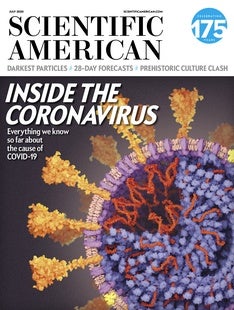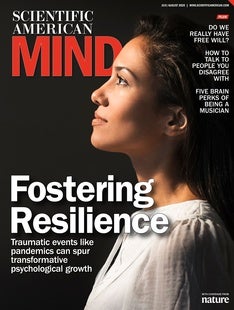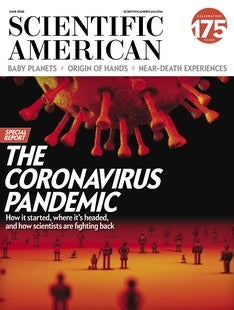 |
| June 16, 2020 |
Dear Reader,
We often prefer to avoid learning information that could cause us pain, even if it would be beneficial. Our lead story explores the science behind this deliberate ignorance. Also featured in today's roundup: opioids have been blamed for the deaths of at least 400,000 U.S. residents in the past two decades—but research now shows that number could be much higher. And, in climate news, greenhouse gas emissions are roaring back as coronavirus lockdowns lift. Additionally, the U.S. Supreme Court ruled yesterday that the Civil Rights Act of 1964, which prohibits sex discrimination, protects gay and transgender workers. It is a long-sought victory for the movement advocating for LGBT equality, but many hurdles remain. Medical and psychological associations have asked explicitly that Congress and state governments ban anti-gay conversion, or trying to alter an individual's sexual identity. In our editorial from January, featured below, Scientific American argues that this practice should be discarded because it is rooted in bad science and causes irreparable harm. |
| | Sunya Bhutta, Senior Editor, Audience Engagement
@sunyaaa | |
 |
| Behavior & Society Why Do People Avoid Facts That Could Help Them? Several studies suggest that individuals widely prefer to remain ignorant about information that would benefit them when it's painful—and sometimes when it's pleasurable By Francesca Gino | |
| |
| |
| |
| |
| |
FROM THE STORE
 | | | |
| |
FROM THE ARCHIVE
 | | | |
| |
LATEST ISSUES
 |
| |
| Questions? Comments?  | |
| Download the Scientific American App |
| |
| |



















Comments
Post a Comment